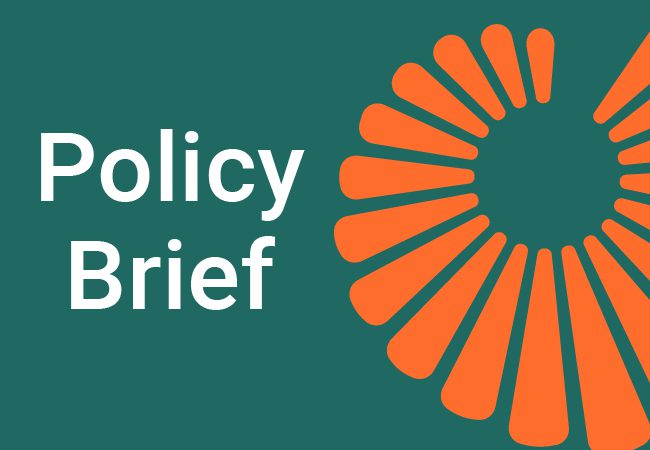Policy Brief: Early Childhood Ireland launches series of Explainers on our sector

Late last year, Early Childhood Ireland published the first in a series of Explainers which describe key aspects of our sector’s work.
These resources, which are available free on our website, are designed to provide a useful overview for journalists, students, academics, policy professionals and anyone interested in Ireland’s Early Years, and School Age Care sector. At present wee’ve published seven Explainers on topics ranging from Childminding to Funding. A further set of Explainers is currently in development and will launch this summer.
What follows is a brief description of the Explainers that have been published to date, together with a link to them.
Childminding
Our first Explainer is on the National Action Plan for Childminding which was launched by the Department of Children, Equality, Disability, Integration and Youth in May 2021. Childminders provide paid, non-relative, home-based care. Childminders play an integral role in the provision of Early Years and School Age Care in Ireland. It is crucial that children of all ages can benefit from quality experiences, whether their parents avail of a childminder and/or centre-based care.
Read more on the Childminding Explainer here.
National Childcare Scheme
We’ve also written an Explainer on the National Childcare Scheme (NCS). The NCS provides financial support to parents to help with the cost of Early Years and School Age Care. Parents or guardians apply for the subsidy, which is paid directly to participating providers. The scheme includes two types of subsidies towards the cost of childcare: a universal subsidy and an income-related subsidy. The NCS is also part of a new funding model called Together For Better, which launched in September 2022.
Read more on the National Childcare Scheme Explainer here.
Workforce
Another explainer is focused on our sector’s invaluable workforce. It also covers Nurturing Skills, the workforce development plan published by the Department of Children, Equality, Disability, Integration and Youth in December 2021. Nurturing Skills sets out five pillars to continue the process of professionalisation of the Early Years and School Age Care workforce. These are: Career Framework, Qualification Levels, National CPD System, Recruitment, Retention and Diversity and Regulation. A professional workforce that is well paid, is provided with fair terms and conditions and is well qualified is essential to ensure that all children have high-quality experiences.
Read more on the Workforce Explainer here.
Early Childhood Care and Education (ECCE)
Our fourth Explainer covers the Early Childhood Care and Education (ECCE) programme, available to all children within the eligible age range. ECCE is designed to provide children with their first formal experience of early learning. The programme aims to promote optimal development for all children and narrow the gap in attainment between more and less advantaged children. The ECCE programme is also part of the new funding scheme, Together for Better, which was launched in September 2022.
Read more on the ECCE Explainer here.
The Access & Inclusion Model (AIM)
We’ve also written an Explainer on the Access & Inclusion Model (AIM). AIM was designed to ensure that children with disabilities can access the ECCE programme. It empowers Early Years settings to deliver an inclusive preschool experience, ensuring that every eligible child can meaningfully participate. AIM is a child-centred model which involves seven levels of progressive support. These move from universal to targeted, based on the needs of the child and the setting. AIM offers tailored and practical supports based on need and does not require a formal diagnosis of disability.
Read more on the AIM Explainer here.
Funding our vital sector
We have written two Explainers on how our vital sector is funded. Early Years and School Age Care is funded by a combination of public investment and parental fees. In December 2021, Partnership for the Public Good: A New Funding Model for Early Learning and Care and School Aged Children was published. It put forward a new funding model comprised of four elements: Core Funding, Tackling Disadvantage funding, the NCS and ECCE. Public investment schemes include Core Funding, the ECCE programme and the National Childcare Scheme (NCS).
Read more in our Funding Explainers here.
Early Childhood Ireland’s Explainers, are available both on our website and as downloadable PDFs, and provide a useful starting point for those trying to better understand Ireland’s Early Years and School Age Care sector. They are freely available on our have proven very popular with members, students, and other stakeholders. The Policy team is currently developing additional Explainers and welcomes input from members with ideas for topics or other suggestions. Please contact us by email to share your thoughts.









